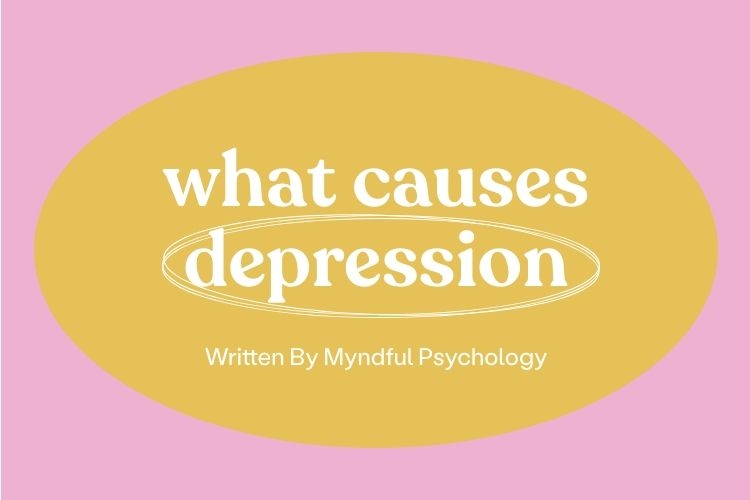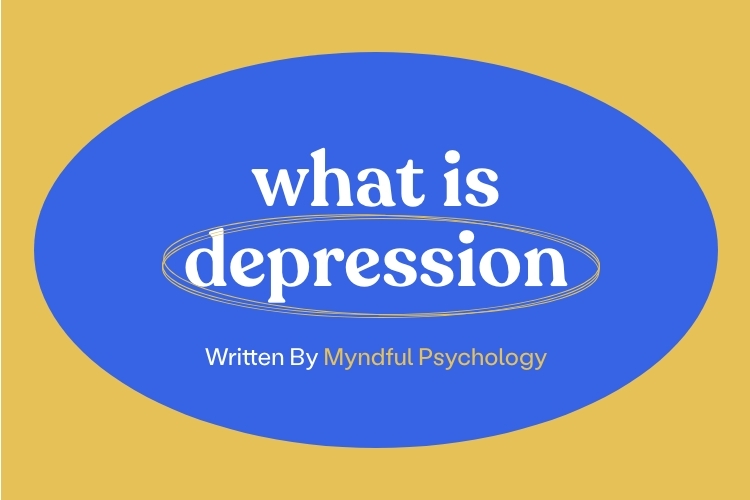Depression
Depression is one of the most common mental health conditions and it affects millions of people worldwide. Yet, despite its prevalence, depression is often misunderstood. Many people might think that they are simply feeling sad or down. This may persist for a few days or longer.
However, clinical depression is a serious condition that impacts how someone feels, thinks, and handles daily activities.
What is Depression?
Depression is more than just a low mood. It is a persistent condition that can affect many aspects of your life, including physical health, emotional well-being, and relationships. Depression is characterized by persistent feelings of sadness, hopelessness, and a lack of interest or pleasure in activities that were once enjoyable.
Common Symptoms of Depression
Depression can manifest in many ways, making it sometimes difficult to identify. However, the following are some of the most common symptoms:
-
Persistent sadness: Feeling down, empty, or hopeless for most of the day, nearly every day.
-
Loss of interest or pleasure: No longer finding joy in hobbies, activities, or socializing.
-
Fatigue and low energy: Constant exhaustion, even after a full night’s sleep.
-
Changes in sleep patterns: Experiencing insomnia or sleeping too much.
-
Appetite or weight changes: Significant weight loss or gain unrelated to dieting.
-
Feelings of worthlessness or guilt: Excessive guilt or feeling like a burden to others.
-
Difficulty concentrating: Struggling to focus, make decisions, or remember things.
-
Physical symptoms: Unexplained aches, pains, or digestive issues.
-
Thoughts of death or suicide: Recurrent thoughts about death, self-harm, or suicide.
If you or a loved one experiences several of these symptoms for two weeks or more, this may indicate they are experiencing depression. Depression is treatable, and early intervention can make a significant difference.
What Causes Depression?
There is no single cause of depression. It often results from a combination of genetic, biological, environmental, and psychological factors.
Some common risk factors include:
-
Family history: If depression runs in your family, you may be more likely to experience it.
-
Life events: Major life changes, trauma, loss, or ongoing stress can trigger depression.
-
Chemical imbalances: Neurotransmitter imbalances in the brain, particularly serotonin, dopamine, and norepinephrine, play a significant role in mood regulation.
-
Chronic illness: Conditions like heart disease, diabetes, and chronic pain are often linked with depression.
-
Substance use: Alcohol or drug abuse can both contribute to and worsen depressive symptoms.
Types of Depression
Depression comes in various forms. A qualified psychologist will be able to identify the type of depression you are experiencing and identify the appropriate treatment.
Some common types include:
-
Major depressive disorder: This is the most common form of depression, characterized by intense symptoms that last for at least two weeks.
-
Persistent depressive disorder (dysthymia): This is a longer-lasting form of depression, where symptoms may be less severe but persist for two years or more.
-
Seasonal affective disorder (SAD): SAD occurs during specific seasons, usually in the winter when there is less sunlight.
-
Postpartum depression: This form affects new mothers and can occur after childbirth.
-
Bipolar disorder: While not classified solely as depression, those with bipolar disorder experience depressive episodes alongside periods of mania or elevated mood.
The Importance of Seeking Help for Depression
One of the biggest challenges with depression is that it can make individuals feel hopeless about the possibility of getting better. However, it’s essential to understand that depression is highly treatable. Early diagnosis and treatment can lead to improved mood, energy, and quality of life.
Treatment options for depression include:
-
Therapy: Cognitive behavioral therapy (CBT), talk therapy, and interpersonal therapy are effective in helping individuals manage depressive symptoms.
-
Lifestyle changes: Regular exercise, a balanced diet, and adequate sleep can significantly improve mental health. Mindfulness and meditation practices have also been shown to reduce stress and improve mood.
-
Medication: Antidepressants, such as SSRIs or SNRIs, are commonly prescribed to help balance brain chemicals linked to mood.
How to Support a Loved One with Depression
If someone you care about is struggling with depression, it can be challenging to know how to help. While you can’t "fix" their depression, offering support can make a world of difference.
Here’s how:
-
Listen without judgment: Sometimes, the most helpful thing you can do is be a listening ear.
-
Encourage them to seek professional help: Gently suggest they speak with a therapist or doctor.
-
Be patient: Depression can make everyday tasks difficult, expecting someone to "snap out of it." can often make the situation worse.
-
Check-in regularly: Small gestures of care, like sending a text or offering to spend time together, can provide comfort.
Breaking the Stigma of Depression
Despite how common depression is, it’s often surrounded by stigma. Many people feel ashamed to admit they’re struggling or worry about how others will perceive them. By educating ourselves and others, we can help reduce the stigma around mental health and create a more supportive environment for those in need.
We can help
If you or someone you love is experiencing symptoms of depression, it is important to seek help early. Depression is treatable, our qualified psychologists can help you to understand how you are feeling.


